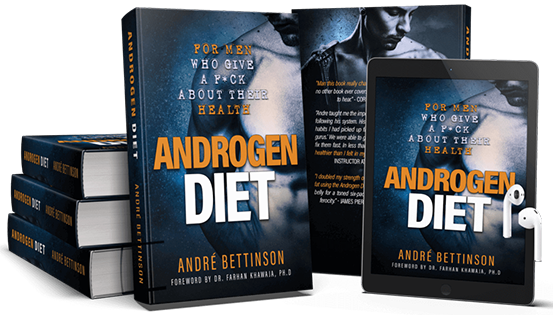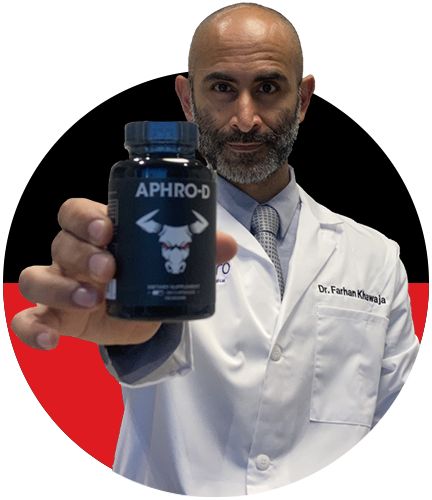What Happens When You Stop TRT?

What is TRT?
TRT or Testosterone Replacement Therapy is a very serious procedure that will stop the natural production of your testosterone in your body. There are a host of complications and issues that arise over time as people take TRT treatments which is why nearly 80% of men will stop TRT altogether at some point. As WebMD states it, “TRT does not cure low testosterone, so your symptoms may return if you stop taking it.” They are exactly right, TRT is likely not the cure for what has led you to have low testosterone levels. For this reason, TRT is avoiding the root cause issues for many men.
Is there a downside to TRT?
There are many downsides to TRT, especially when it is not actually the solution for your low testosterone. It can exacerbate prostate problems, cause man boobs, contribute to balding, and cause high hematocrit and blood cell counts which extend to high blood pressure and potential heart disease.

What to expect when getting on TRT?
When you start TRT you should expect that you will become infertile which may be OK for your current goals and state of your life, there will not be any spermatogenesis going on. For this reason alongside your body not producing its own testosterone, your testicles will significantly shrink as well.
Many men can feel good benefits such as energy levels, drive, and even libido increases initially. However, depending on the actual root cause of low testosterone in that person, these benefits can subside over time and not maintain.
Too many men out there think that getting injections will be the solution to all of their problems, only to be sold MORE things to inject, pills to take, and a laundry list of reasons why they aren’t feeling in tune with their body and their expectations.
Will my balls shrink on TRT?
It’s inevitable that your balls will shrink with TRT. The entire production pathway via the Leydig and Sertoli cells for testosterone and spermatogenesis are being hijacked through injections or otherwise. This whole bodily feedback and communication to the brain through the body has been disrupted. So it is completely expected that the size of your boys downstairs will shrink quite a bit. From oblong golf balls down to some shriveled-up grapes is a good explanation of what you might expect.

Is testicular atrophy permanent after TRT?
According to many fertility clinics, this atrophy of the boys downstairs IS often indeed permanent, unfortunately. This may be something you’ll want to come to terms with or ensure that you know this has the potential to be a permanent change for you. It’s not guaranteed that the production of testosterone will reach the heights it once has at the same time.
How do you prevent testicular shrinkage on TRT?
Many clinics will try to prevent shrinkage and infertility through the use of synthetic HCG, which mimics the signaling hormones the brain sends to the testes. This does significantly cost extra, and may not always be a fool-proof way to put off the inevitable shrinkage and infertility of TRT.
HCG can delay the onset of these conditions, however.
How long does it take for natural testosterone to come back after TRT?
It may take up to 60-120 days for natural testosterone levels to be produced in some capacity after coming off of TRT. This process can be very depressive and difficult. However, it is important to know that it’s not guaranteed that after extensive TRT or hormone treatments natural testosterone levels could ever recover fully. It’s not guaranteed, and how finely tuned one’s system is may not be fully regained after sustained TRT usage.
If you’re in a good spot naturally or alleviate the root causes and optimize your hormones, you should do that work and I would steer clear of any hormone treatments of the sort. That’s how you can reach your full potential.
Can you go back to normal after TRT?
Unfortunately, it’s never guaranteed that things can recover to what could be optimized naturally. It truly depends on how long you’ve been going through TRT and how long the signaling has been severed between your brain and your manhood downstairs. TRT will sever this tie, and in some cases, natural production can be regained. However, the extent that it could be regained has not been well documented yet after the long-term use of TRT.
Can you quit TRT cold turkey?
I would highly recommend against quitting TRT ‘cold turkey.’ There are compounds like HCG that can be used with your clinic to help you regain natural production. This use of something like clomiphene and the addition of HCG for a short term. This is very important. I have heard firsthand from some clients that their clinic will allow them to quit cold turkey without them realizing they may remain shut down.
One could postulate that these sketchy clinics would want you to come ‘crawling back’ to them begging to be back on testosterone. Stopping treatment really needs to be openly discussed with the clinic and doctor but also have the patient realize they deserve to be helped through the process of regaining their natural production back with the best game plan.
What are the side effects of coming off testosterone?
The side effects of coming off testosterone include low libido, irritable demeanor, and often some deep depression. This is why it’s highly unadvisable to get off of testosterone cold turkey.
The right transition to natural production, healthy holistic lifestyle implementation, and root cause solutions of why one’s testosterone is low can give a much better outcome.
How can I increase testosterone without TRT?
For everything you need to know about boosting testosterone naturally, read this article.
I go into the root causes of low testosterone for men, how to alleviate them, exactly what to avoid, and exactly what to do, depending on your personal body state and potential nutritional deficiencies.








